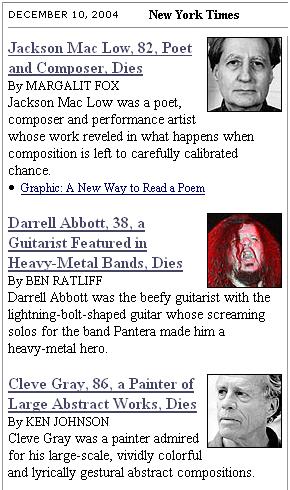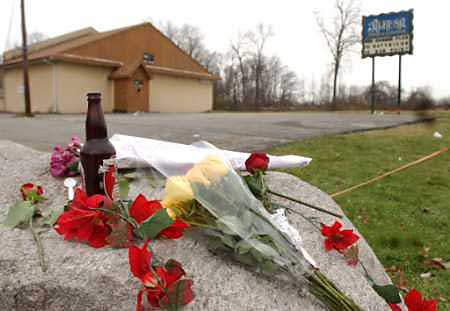Ideas, Stories, Values:
Literati in Deep Confusion
Joan Didion, The White Album:
"We tell ourselves stories in order to live....
We
interpret what we see, select the most workable of multiple choices. We
live entirely, especially if we are writers, by the imposition of a
narrative line upon disparate images, by the 'ideas' with which we have learned to freeze the shifting phantasmagoria which is our actual experience.
Or at least we do for a while. I am talking here about a time when I began to doubt the premises of all the stories I had ever told myself, a common condition but one I found troubling."
Interview with Joseph Epstein:
"You can do in stories
things that are above those in essays," says Epstein. "In
essays and piecework, you are trying to make a point, whereas in stories you are not quite sure what the point is. T.S. Eliot once said of Henry James, 'He had a mind so fine no idea could violate it,' which, I think, is the ultimate compliment for an author. Stories are above ideas."
Harvard President Lawrence H. Summers, Sept. 12, 2004:
"You are entering a remarkable community, the Harvard community. It is a community built on the idea of searching for truth... on the idea of respect for others....
... we practice the values we venerate. The values of seeking truth, the values of respecting others...."
Paul Redding on Hegel:
"... Hegel discusses 'culture' as the 'world of self-alienated spirit.' The idea seems to be that humans in society not only interact, but that they collectively create relatively enduring cultural products (stories, dramas, and so forth) within which they can recognise their own patterns of life reflected."
The "phantasmagoria" of Didion seems related to the "phenomenology" of Hegel...
From Michael N. Forster, Hegel's Idea of a Phenomenology of Spirit:
"This whole system is conceived, on one level at least, as a defense or
rational reworking of the Christian conception of God. In
particular, its three parts are an attempt to make sense of the
Christian idea of a God who is three in one -- the Logic
depicting God as he is in himself, the Philosophy of Nature God the
Son, and the Philosophy of Spirit God the Holy Spirit."
and, indeed, to the phenomenology of narrative itself....
From Patrick Vert,
The Narrative of Acceleration:
"There are plenty of anecdotes to highlight the personal, phenomenological experience of railway passage...
... a unique study on phantasmagoria and the history of imagination. The word originates [in] light-projection, the so-called ghost-shows of the early 19th century....
... thought becomes a phantasmagorical process, a spectral,
representative location for the personal imagination that had been
marginalized by scientific rationalism....
Truly, 'immediate experience is [or becomes] the phantasmagoria of the idler' [Walter Benjamin, The Arcades Project. Cambridge: Harvard University Press, 1999. Page 801.]....
Thought as phantasm is a consequence of the Cartesian split, and... a
further consequence to this is the broad take-over of perceptual
faculty.... What better example than that of the American
railway? As a case-study it offers explanation to the
'phantasmagoria of the idler'....
This phantasmagoria became more mediated over time.... Perception became increasingly visually oriented.... As this
occurred, a narrative formed to encapsulate the phenomenology of it
all...."
For such a narrative, see
the Log24.net entries of
November 5, 2002, 2:56 AM,
November 5, 2002, 6:29 AM,
January 3, 2003, 11:59 PM,
August 17, 2004, 7:29 PM,
August 18, 2004, 2:18 AM,
August 18, 2004, 3:00 AM, and
November 24, 2004, 10:00 AM.



 leve Gray,
leve Gray, 



Recent Comments